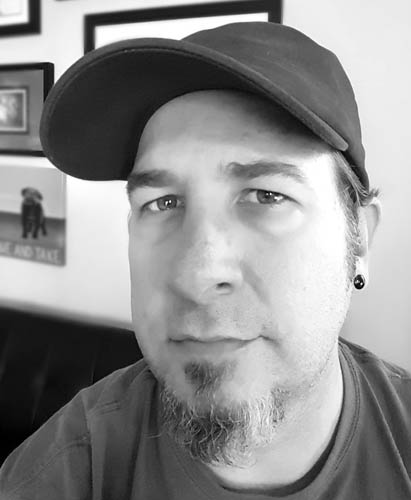 Hi, I’m Chris. I build software.
Hi, I’m Chris. I build software.
I started my career in the mid-1990s building web sites. In the earliest years of my career, I studied music, business, visual design, and even got a certificate in web design. Then work as a web-site-only development largely came to a screeching halt.
Over the following few years, I floated in and out of jobs, and spent some time as a picture framer. I went back to college and finished a degree in applied mathematics, with a minor in philosophy. My lower division was defined by a blended study of mathematics and computer science. My upper division was focused exclusively on mathematics and philosophy.
In the final two years of my degree, I worked for a local non-profit organization called San Diego Cal-SOAP. At San Diego Cal-SOAP, and my following position, I worked as a web developer and software engineer. During this time, I worked on software in much the same way many developers do, even now: I hacked code, manually checked behaviors, and hoped that nothing broke.
These were stressful years.
Around 2013, I started researching design patterns in greater earnest, and studied test-driven development/design. This redefined the way that I look at building software.
By 2014, I started building open source software (OSS), and developed a number of projects which saw limited use. These projects were important for my personal growth as I learned more about how the OSS community functions and what it means to create software you share with the world.
Between 2013, and 2016, I fleshed out some missing topics from what would have been a bachelor’s degree in computer science. I covered a number of topics which, ultimately, led to the development of a set of domain-specific languages for broader non-academic purposes.
I worked at a couple of different companies, eventually moving to Hunter Industries to work with a good friend of mine. In the first year at Hunter, I started work on a popular, though now rather neglected, Visual Studio Code plugin, JS Refactor.
I continued to develop new open source packages in, what you might call, mattress sourcing. Much of the work was developed with one purpose, or another, in mind, but shared in the hope someone else might find it useful.
I spent two years working in the evening as a software development instructor for a local Bootcamp (intentionally unnamed). I spent as much time learning as teaching, and discovered ways to help students learn what I have to share, and share what they know as well.
Recently I’ve started work with a new company, exploring potential development approaches for a new project. This latest project has moved me into the realm of developing in Python professionally. A first for me, since my background is largely JavaScript and C# (in that order).
Beyond the strict realm of professional work, I have taken to studying software humanities, of a sort. I have a growing collection of works about the history of computing, communities in software development, approaches to software, and people involved in the process of creating software.
My latest focused research has moved away from historical topics, and I have been working through a fairly intensive study of linguistics. The goal of incorporating linguistics into the body of knowledge I have available to draw upon, is to better understand how people actually understand and interact with source code.
My preferred practical applications of linguistics are focused on usage-induced syntax, semantics, and pragmatics. This focused research is ongoing and I have been writing blogs about my discoveries, recently.
- Follow me on Twitter
- Fork me on Github
- Visit me on LinkedIn
- Email me at cmstead@gmail.com
I have no Facebook account. At this point, I feel that requires no explanation.